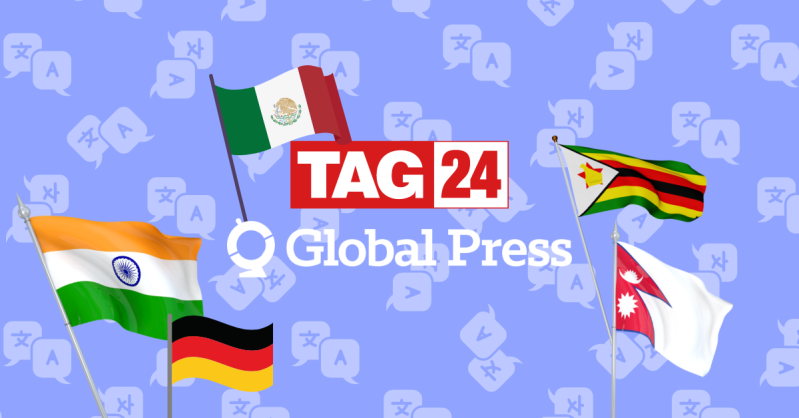Industries are learning to navigate language barriers to unlock new possibilities in their work, and newsrooms are no exception.
Just within the United States, the number of people who speak a language other than English at home nearly tripled from 1980 to 2019, according to a recent U.S. Census Bureau report.
Here’s how two news organizations at ONA23 embrace multilingual reporting to reach new audiences and enhance their coverage.
Translation for Growth
Lena Grotticelli began her career with TAG24 NEWS in Germany, helping translate content from German to English. In 2021, she launched the New York office for the English language-affiliate.
The organization uses a short-form, high-volume model of publication to encourage site traffic. The 10-person U.S. team generates about 40 articles per day, each about 300 words, on trending topics for a millennial and Gen Z audience.
As the organization works to establish itself as an authority in English-language journalism, the ability to translate and republish content from its German counterpart helps the small staff increase quantity to drive search engine optimization. Around 10% of the content published on the U.S. site is translated from German.
To combat the challenge of being associated with a German parent company, editors often select content that will drive clicks – such as animal or celebrity stories – to help increase visibility to American audiences.
Grotticelli said she uses the company-view of the German side of the site to search for a keyword like “katze” (cat) or “hund” (dog) among recently published stories. Toggling an icon from the German flag to an American flag transfers the story to the U.S. site and automatically translates the text.
TAG24 NEWS uses the service Deepl, which is embedded into its content management system, to translate German articles into English.
As simple as the process seems, it does produce several challenges, and a set of human eyes is always required to iron out each generated translation. Additionally, all hyperlinks still lead to German websites after translation, requiring manual updates from editors. Issues can arise with photos as well, as the rights to those used on the German site do not always carry over to the U.S.
“It’s honestly a process that I believe could be streamlined even more. It does tend to take us a lot of time,” Grotticelli said. But for now, the system allows a small team of reporters to reach their high-volume goals and build their brand.
Translation to Uplift
Global Press’s multilingual approach is rooted in the mission to restructure international reporting. The U.S.-based nonprofit builds representative newsrooms by hiring local women to report on their communities in parts of the world lacking reliable media coverage.
After her first assignment as a foreign correspondent, Global Press founder and CEO Cristi Hegranes found that she was ill-equipped to tell the stories of the community to which she traveled. So in 2006, she founded Global Press to train women journalists in the world’s least-covered places to report with social, historical and cultural accuracy.
“The knowledge that they have about their communities is unique,” said María Arce, the editorial coach for Latin America at Global Press. “It doesn’t matter how much you studied about a country or about the city before traveling to cover a story. You’ll never get the same knowledge.”
The organization publishes every article in the reporter’s language and in English.
“The ability to speak English is a powerful gatekeeper in our industry,” Hegranes said. “So building translation and language equity systems into our newsroom is essential.”
Maintaining the integrity of each story requires review through the Global Press Accuracy Network, which is a team of over 45 people.
Journalists employed by Global Press do not receive specific assignments, because the organization seeks to change the tendency of media outlets to focus their international reporting on situations of extreme poverty or disaster. Instead, the local reporters pitch their own human-interest, consequence-driven stories.
“We don’t want to perpetuate the narrative of poverty. We don’t want to perpetrate the narrative of violence,” Arce said. “We will find amazing beautiful stories that have nothing to do with that kind of narrative.”
Global Press journalists always begin by reporting and writing in their local language. They work with an editor for a first round of edits, then the story passes to a fact checker who also confirms the accuracy of every detail in the original language. Finally, the story receives copy edits.
Each story is then translated. Global Press tries to employ translators native in English to ensure the most accurate translation possible. The original writers and editors have the option to leave notes about particular words or phrases whose meaning might leave room for interpretation.
Translated stories are reviewed and sent for another round of fact checking and copy editing in English. If the original reporter is bilingual, they have the chance to review the final translation.
Upon publication, the names of everyone who played a role in the process are listed in the story.
“That’s because it’s one of our values of dignity, and we’re ensuring transparency to the audience and readers,” Arce said.






